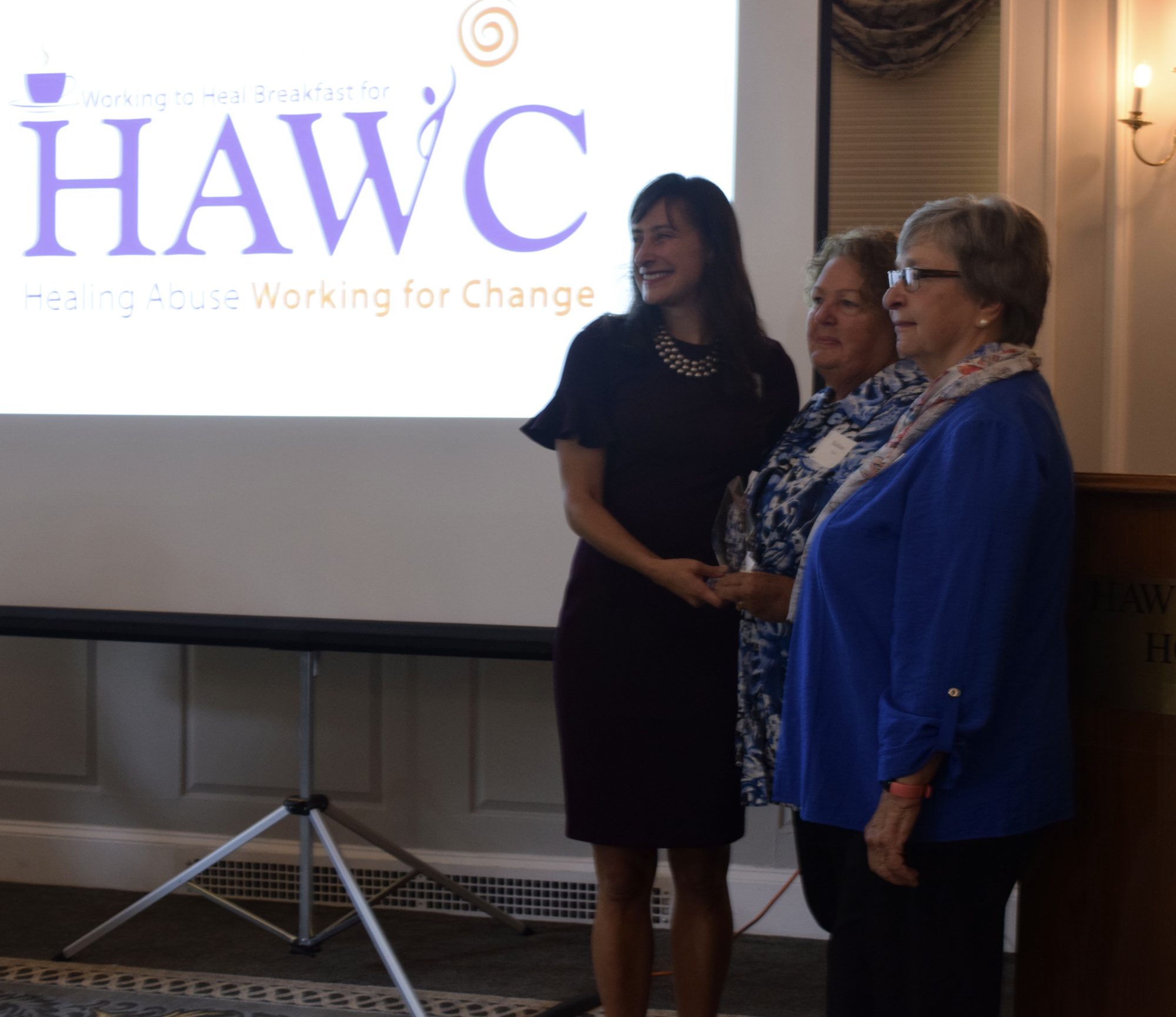SALEM – A breakfast conference focused on domestic violence was held on Thursday by HAWC (Healing Abuse Working for Change).
It is a fundraising event and a memorial for HAWC founder Dale Orlando. State representative Paul Tucker explained that 65 percent of the funding for HAWC came from federal and state contracts. The remaining 35 percent is what the public are left with to be responsible for.
The goal at the event was $50,000, and at the time of Tucker’s speech it was $21,000 with scholarships and breakfast ticket sales.
Tucker says that for every $1,000 donation, it means a week stay in HAWC’s emergency shelter or hotel; donation of $750 can supports a parent and child to enroll in HAWC’s Innovative Parent Child Trauma Recovery Program; donation of $500 can pay for a moving truck for a victim transitioning to a new home; donation of $250 can supply two weeks of food for a family in change; $50 can get victims an uber roundtrip to court and back to seek a protective order.
Barbara Oro, the staff attorney at HAWC was awarded with the Dale Orlando Memorial Award for outstanding Initiative in working for Change and fierce advocacy on behalf of survivors of domestic violence. From 2018 to 2022, she changed the lives of 417 victims and provided 500 free legal clinics.
“She (Oro) empowered survivors with the information and advice they needed to access the legal system and enforce their rights for the nearly 100 individuals that she directly represented in court,” said Sara Stanley, HAWC executive director. “She was their legal warrior fighting with what seemed like infinite energy to help them become safer.”
According to Deborah Engler, the community collaboration manager, HAWC has four primary services. The first is the community advocacy program, where advocates work directly with survivors. They plan with survivors for essential components to achieve a sense of safety and stability. Then it is the legal advocate program which specifically helps with restraining orders and harassment orders. The legal advocates also go into the courtroom with victims, not as lawyers, not to represent, but for support. The third part is the shelter. Engler said the biggest issue was a lack of residential space for survivors. For a statewide property that covers 23 cities, there are only 10 beds. The last piece is the HAWC hotline. The number is 1-800-547-1649 and is available 24/7, and anyone, not just clients, can call.
Sylvia Chen can be reached at [email protected]

